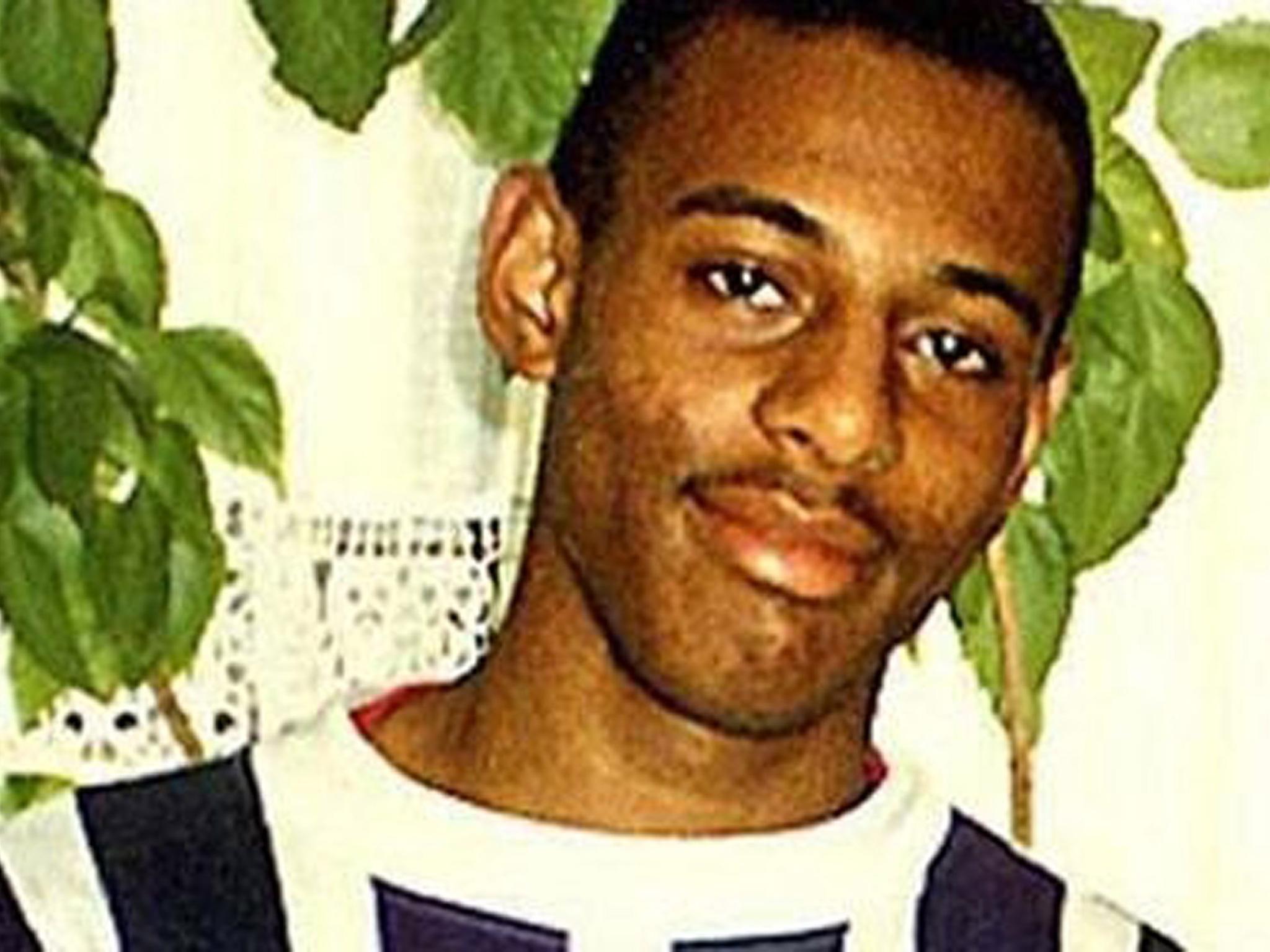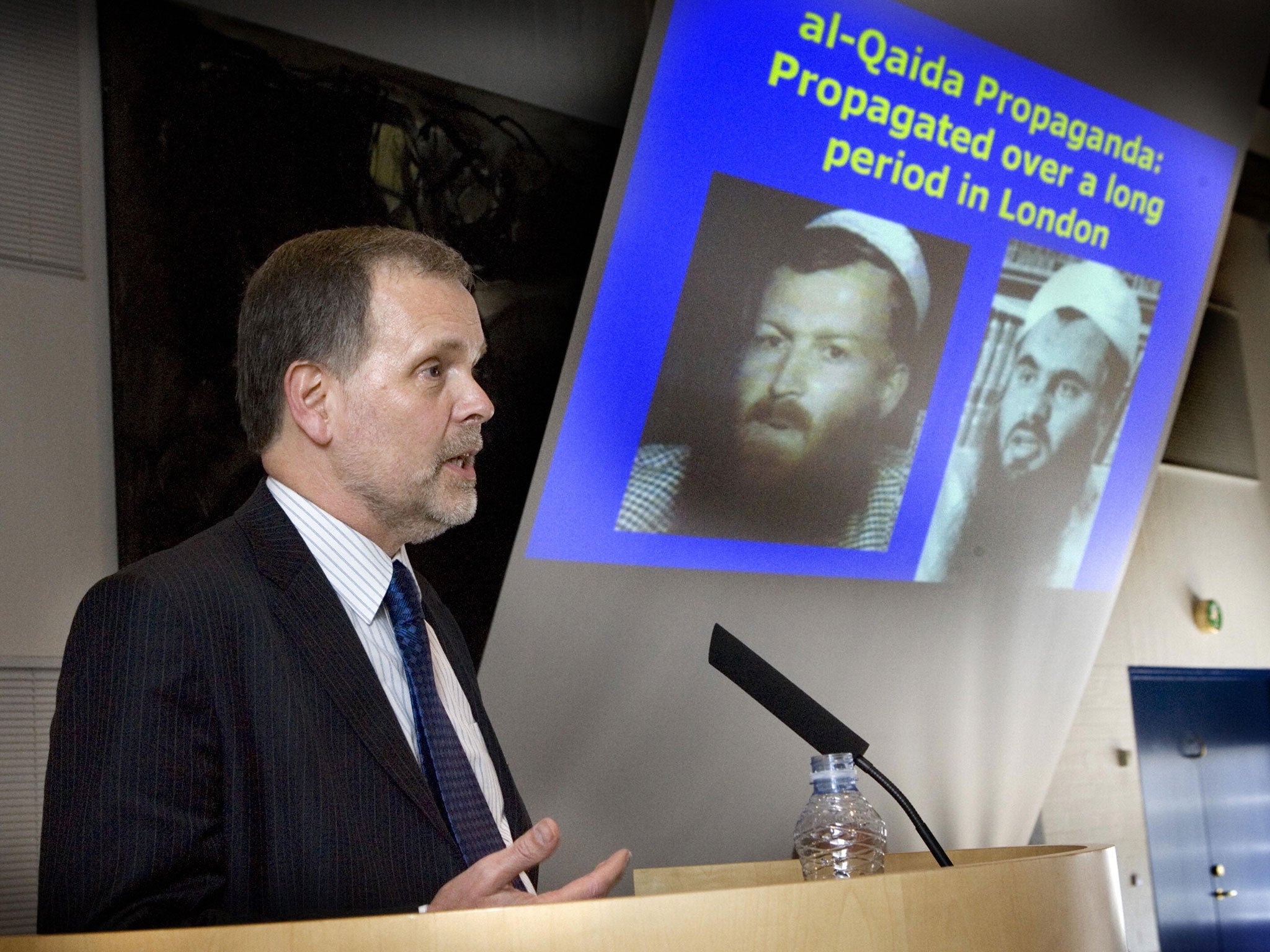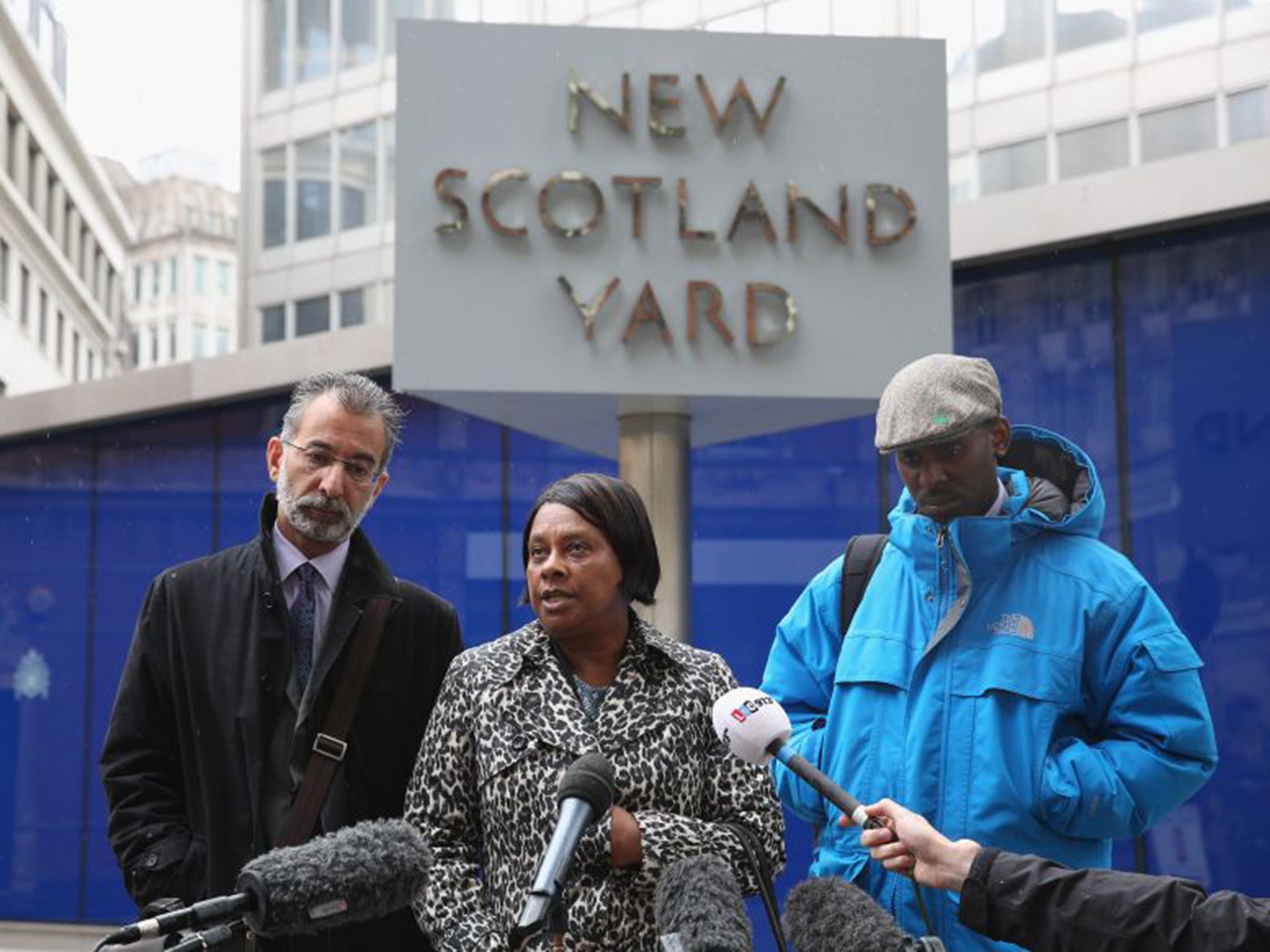Stephen Lawrence: Senior Metropolitan Police officer who met accused Lawrence family spy will face no action
The IPCC found that two former officers had a 'case to answer' for possible misconduct but had retired

Two former senior Metropolitan Police officers linked to alleged undercover surveillance of Stephen Lawrence’s family cannot be questioned on the case because they have retired, a watchdog has admitted.
The Independent Police Complaints Commission (IPCC) found that Commander Richard Walton and Detective Inspector Robert (Bob) Lambert “have a case to answer" for discreditable conduct but can face no misconduct proceedings as they are no longer serving officers.
The probe started following a damning report by barrister Mark Ellison QC into the Lawrence murder case, which found that undercover officers had gathered information on the murdered teenager’s parents as anger grew over their own failed investigation.
It was more than 18 years before two of his killers - Gary Dobson and David Norris - were brought to justice and jailed for life.
The Ellison Report revealed a 1998 meeting between the spy, codenamed N81, and Mr Walton as he drafted Scotland Yard’s response to the Macpherson Inquiry into failings in its original investigation.
The IPCC alleged that Mr Walton, then an acting Detective Inspector, had met the undercover officer and “obtained information pertaining to the Lawrence family and their supporters, potentially undermining the inquiry and public confidence”.
N81, part of the Met’s controversial Special Demonstration Squad (SDS), was “well-placed in one of the groups that associated itself with, and tried to build relations with, both the Lawrence family and other groups” in the years after Stephen’s racist murder, the Ellison Report said.
Although N81 was “adamant” that there was no specific instruction to infiltrate the Lawrence family campaign, his deployment at a time when relatives were making public accusations of police failures and corruption “should have raised concern”, the review found.
It has previously been claimed that N81 told Mr Walton that Stephen's parents had separated, although the IPCC found no evidence of this.
Mr Lambert, former Commander Colin Black and two other ex-officers were identified as potentially playing a part in arranging the meeting in August 1998.
The IPCC found that Mr Lambert, who left Special Branch in 2007, would have had a case to answer for misconduct, but that Mr Black and the other two officers would not.
“The investigation found no evidence that N81 passed information about the Lawrence family or their campaign to Mr Walton at the meeting, and the MPS submissions to the Inquiry were not altered,” the IPCC concluded.
“However, if the fact of the meeting had become public at the time of the Inquiry, this might well have caused very serious public concern.
“Mr Lambert was found to have a case to answer for misconduct for his part in arranging the meeting while Mr Walton’s case involved his attendance at the meeting.”
Mr Walton was temporarily moved from his job leading the force's counter-terrorism command in 2014 and retired on 20 January this year, while the other investigated officers have also left their posts.

It means that IPCC cannot make recommendations that disciplinary meetings and interviews are undertaken, nor can the allegations be proven.
All had been served with notices saying they were being investigated over allegations amounting to possible gross misconduct.
Sarah Green, deputy chair of the IPCC, said: “During the Stephen Lawrence Inquiry, the honesty and integrity of the Metropolitan Police was rightly under intense public scrutiny. The force’s reputation may have suffered immense damage had the meeting become public knowledge at the time.
“The IPCC found that Robert Lambert and Richard Walton both had a case to answer for discreditable conduct in that their actions could have brought the force into disrepute. As neither of the men are now serving police officers, it is not possible for misconduct proceedings to take place to determine whether or not the case would be proven.”
In January, lawyers for Stephen's father, Neville Lawrence, made an unsuccessful attempt to stop Mr Walton retiring so that he could face misconduct claims.
Baroness Lawrence, his mother, told the Daily Mail at the time: “I find it upsetting to think that Commander Walton might be able to retire without being held to account.
“With the exception of one detective, nobody has been looked into for corruption or wrongdoing and no one has been charged in relation to anything that has happened in Stephen's case.
“We're coming up to 23 years since Stephen's murder and all the failings of the original investigation are still hanging around for my family.”
The IPCC investigation is the latest in a long series of probes into the Stephen Lawrence murder case following the 18-year-old’s killing by a racist gang in south-east London on 22 April 1993.

The circumstances of the murder and the subsequent police investigation were reviewed by the Macpherson Inquiry, which reported in 1999, and in 2012 the Home Secretary established The Ellison Review specifically to look at undercover policing.
Following its exposure of the meeting between Mr Walton and N81, the MPS referred the conduct of officers involved to the IPCC in April 2014.
A spokesperson for the Metropolitan Police said the force responded to the IPCC to say it disagreed that Mr Lambert and Mr Walton’s conduct could have amounted to misconduct.
“Whilst there is little doubt the meeting on August 14th 1998 took place, there is little or no evidence to suggest that either of the former officer's intentions in attending or arranging the meeting was in anyway improper or that any of the information passed to, the then, Acting Inspector Walton was used, or could have been used, to supplement the Met's submissions to the Macpherson Inquiry or indeed that any information relating specifically to the Lawrences or their campaign was exchanged,” he added.
“We believe that if the evidence points towards the meeting being legitimate or there is insufficient evidence that it was not legitimate then there could be no finding of misconduct, gross or otherwise, for either officer.”
Additional reporting by PA
